Alice in Borderland Season 3 Ending Explained: Directed by Sato Shinsuke and featuring Yamazaki Kento as Ryohei Arisu, Tsuchiya Tao as Usagi Yuzuha, Isomura Hayato as Banda Sunao, Miyoshi Ayaka as Ann Rizuna, Kaku Kento as Ryuji, Ohkura Koji as Tetsu and others. This Season of the series (今際の国のアリス 3) runs for six episodes, each approximately 70 to 80 minutes long, and follows the high-stakes tale of players stuck in the Borderlands again. As Arisu and Usagi attempt to come to terms with the catastrophic events of meteorite fall, they are soon drawn back into the games by enigmatic forces which gradually subsume their troubled past and new fatal threats.
The season begins with Arisu and Usagi struggling to resume a normal life after their time in the Borderlands, but shards of memories and disturbing dreams drive home that the past isn’t finished with them yet. Arisu tries to remember and recall more of the murderous games, while Usagi can’t erase memories of her father and the trauma from survival. Their pursuit of domesticity is disrupted when Ryuji, a scientist captivated by near-death experiences, gets caught up in Banda’s Machiavellian scheme to pull them back into the games.
But as the season continues, the couple is drawn back into the Borderlands at the behest of Ann and Banda’s machinations. Arisu and Usagi are put through a string of ever more dangerous tasks. In each game, they are made to face not only physical threats but also trust, morality and the burden of past trauma. Ryuji, obsessed with the afterlife, has been forced to help Usagi enter it despite his reluctance.
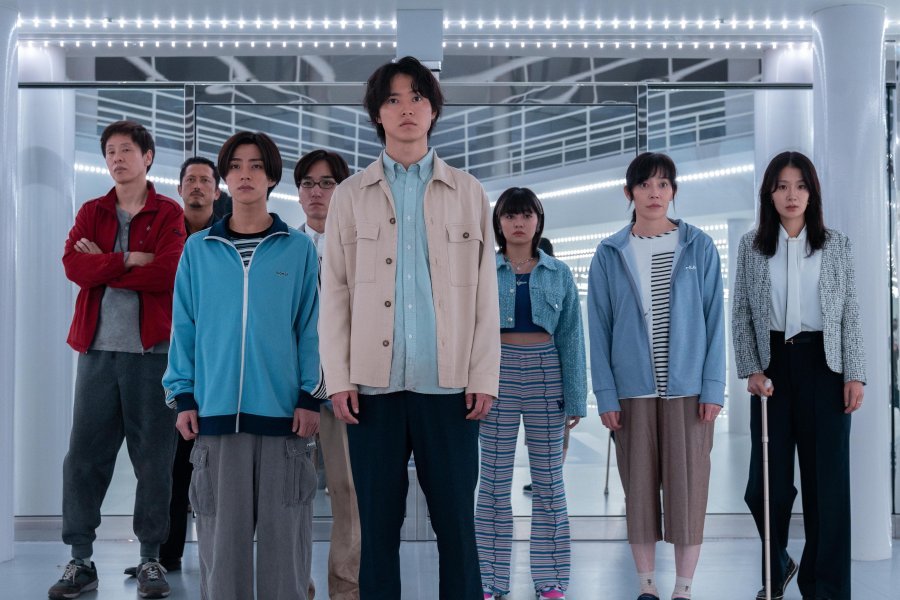
Alice in Borderland Season 3 Ending Explained
What Is the Two-Minute Theory of Entering the Borderlands?
The two-minute theory posits that the Borderlands are in the delicate liminal state between life and death — more specifically, during those precious minutes right after your heart has stopped but before your brain has completely lost consciousness. It sounds like a near-death experience, but in Alice in Borderland, it becomes something more existential. In those two minutes, time stretches out indefinitely, forging whole worlds in which players can experience years of trauma and love and betrayal and survival while floating forever on the edge of life.
Emotionally, the theory redeems the system of games not as sheer random cruelty but instead as a metaphysical examination. In the Borderlands, players face down their worst fears and regrets, reliving pivotal moments of decision and indecision, and so doing find possibilities for change. Arisu and the others are not just simply playing for survival; they’re grappling with who they really are and what’s most important to them, before returning to reality or death. The games, in this sense, are not so much about winning or losing as they are about a decision on whether life is worth struggling for in those two stolen minutes.

Why Do Usagi and Arisu Go Back To The Borderlands?
The reason Arisu comes back isn’t out of curiosity, but out of an anxious loneliness. In life, he feels broken, haunted by shards of memory that have slipped from his grasp. But even when he does attempt to succeed at these — marrying Usagi, working, pretending to lead a normal life — an emptiness plagues him. That restlessness becomes unbearable when Banda sucks him back into the orbit of the games. Return to the Borderlands means desperation to know himself, for Arisu, and sacrifice in order to save Usagi – if not at the cost of all things.
For Usagi, it’s even more emotionally driven. She is weighed down by the heavy shadow of her father’s death — she can’t shake it, “the image of him falling” and the guilt that clings to her. She desires peace, and yet her bereavement links her to the Borderland subconsciously. She is not after the games willingly, but sores draw her. That Borderland then transfigures into a manifestation of her own inner torment, and the only way to confront that pain that she cannot look at in the waking world. Neither she nor Arisu returns because they feel like it; they do so because their trauma won’t let them be.
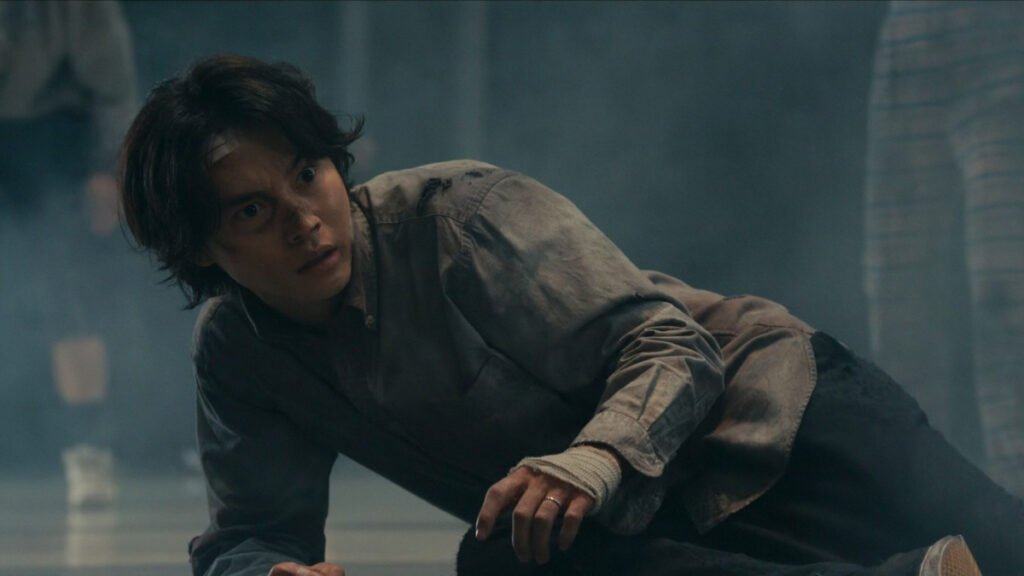
What Happens in the Sacred Fortunes Game?
Sacred Fortunes presents itself as a fatalistic game of chance and numbers, but at heart, it is about confronting the horror of uncertainty. Each draw feels like rolling the dice with fate, as every wrong answer rains a storm of arrows down that reflects visually the chaos of Arisu’s own fractured memories. For him, the game is not merely a calculus test but also a violent awakening — a catalyst that opens up the trauma he has buried since leaving the Borderland. It is, as he recollects, a terror that all but paralyses him, but it also clears his head.
The turning point isn’t one of emotion so much as it is about the mind, when Arisu no longer just reacts blindly to those numbers but instead sees the clues hidden in them. And in that moment, Sacred Fortunes ceases to be random cruelty and becomes a puzzle that rewards insight and leadership. Conducting the group to the tunnel is, for him, a clamber for control and, in turn, an assertion of evolution — that survival can boil down to watching and thinking properly, even when odds are impossible; being willing to bear responsibility. It’s emotionally telling that Arisu is no longer the one weeping with fear and has somehow become someone who can pull others through their despair.
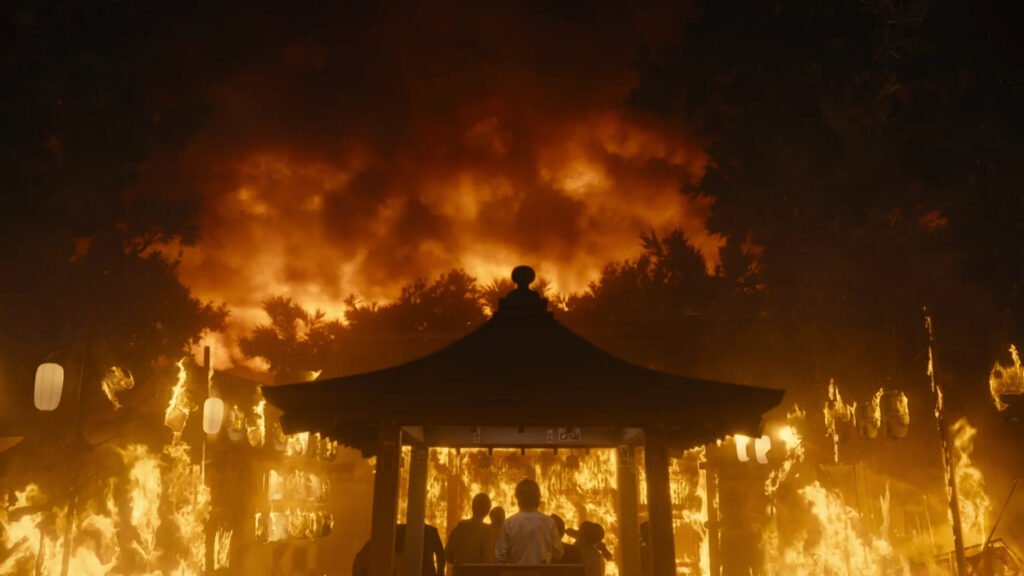
Also Read: The Guest Review: Twenty Episodes of Secrets, Lies, and Wasted Time
How Did Arisu Survive the Zombie Game?
The Zombie Hunt game underscores how trust breaks down under pressure, and Arisu’s survival is essential to that theme. At first, humans resolutely grasp order by such rational controls as the “trust barricade,” but then fear and self-interest melt them down. Players become violent, alliances fracture, and what was a fight against zombies becomes an exploration of the ugliest aspects of human nature when survival is at stake. It’s an emotional blow for Arisu — who has always believed that co-operation is our best superpower — to see hope unravel so swiftly.
But his escape is hardly a fluke — it comes at the end of considerable growth and the painful embrace of brutal facts. By keeping that he was infected hidden from the start, Arisu lies not in malice, but as a matter of survival. Unlike reckless dudes like Ikeno, Arisu is able to couple guile with empathy in some of his moves and ultimately make decisions that guarantee victory without completely selling out his soul.
That whisper reveals — that he was in fact a zombie all along — has emotional weight not just because it confirms that life in the Borderland requires some level of compromise, but because it proves Arisu has formed calluses without losing himself: a will to protect others even in a world built on betrayal.
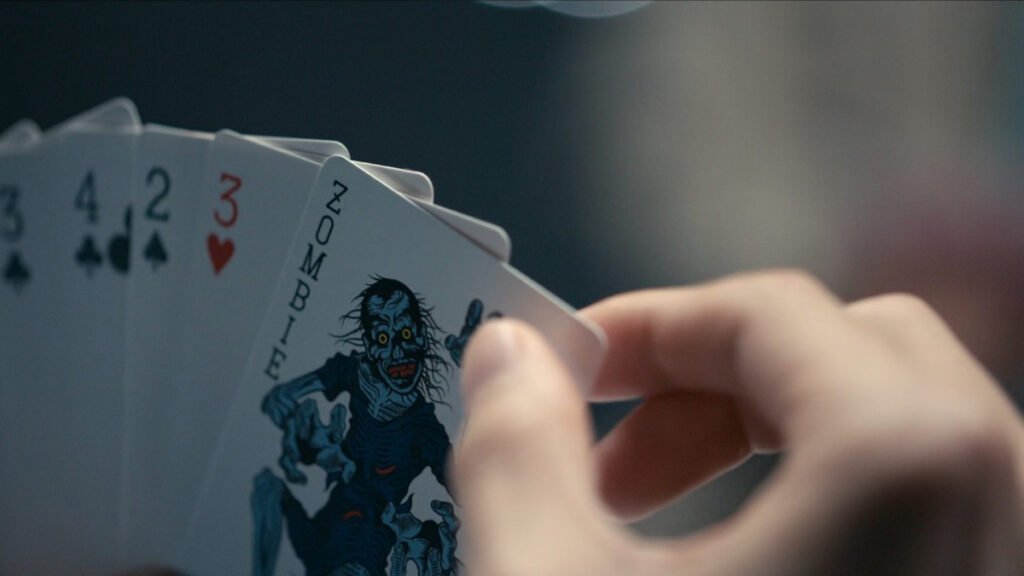
Who Was Ryuji? Why was He Interested in the Afterlife?
Ryuji is one of the most tragic characters in the Alice in Borderland Season 3 series because his obsession with the afterlife isn’t simply academic — it comes from a place of guilt. A scientist, he was proud of his commitment to rationality, but when he succumbed to a student’s appeal for an artificially induced near-death experience and crossed an ethical line that would cost one young man his life.
That failure dogged him not only professionally but spiritually, leaving behind a wound that science could not heal. His subsequent attempt to commit suicide was not only misery but also an opportunity to reach out: to find out what his student might have seen, whether her death might mean something. The twist that he survived, marred and damaged, made his torment deeper — when he touched up against death and came back empty-handed.
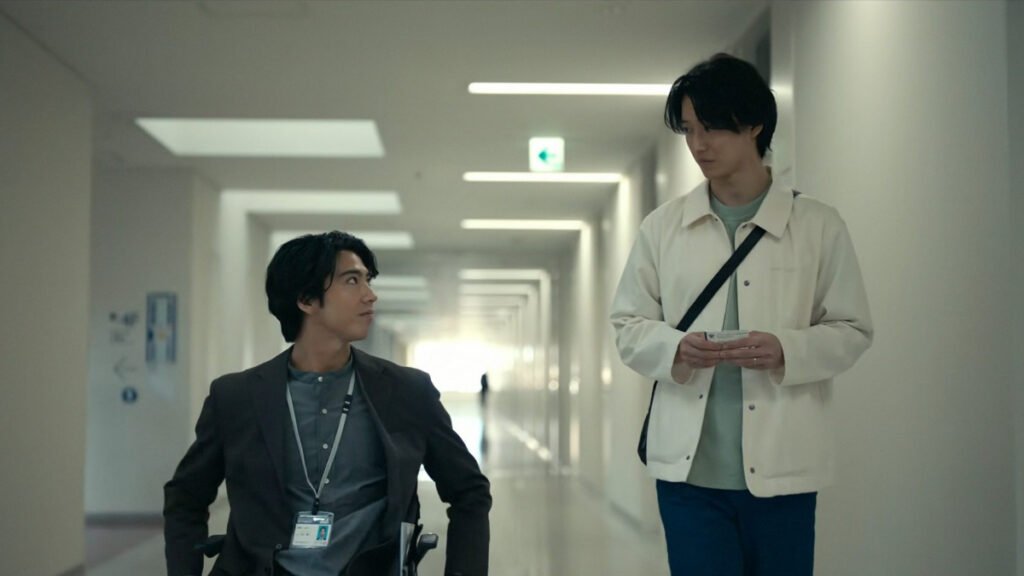
This is the reason why Ryuji is so captivated by Borderland. Unlike most others, for him it’s not just a place of danger but an affirmation of everything he wanted to believe: that the space between life and death exists, that consciousness remains after the body dies. Banda’s manipulation of her was so effective because it preyed on this wounded longing.
Banda dangled the promise of a “Netherworld,” but when Ryuji took that bait, he wasn’t thinking like a player or even like the survivor that he was — his thoughts were those of a man desperate to forgive himself, and prove to himself that his life’s work hadn’t been worthless. His fixation was no longer one of curiosity so much as redemption. The sick twist is, his quest for the truth just repeatedly ensnared him in Banda’s plots and turned his own tragedy into another tool of chaos within the Borderlands.
Why did Banda not want Arisu to Go Back to Life?
The reason Banda won’t let Arisu be revived has nothing to do with the superstitious fear that people who die in the game will also die for real, and everything to do with his desire for a far more thrilling Borderland. The world to him is not a purgatory but a stage, and its players his pawns in a twisted theatre. The trouble is, after most of the strongest players either died or elected to return to life, Banda was stuck with a diminished iteration of the Borderlands — an environment with no resistance, no emotional stakes.
Which is why he becomes so fixated on Arisu. Whereas the others breathe heart, conviction, and defiance, a dangerous combination that risks turning the games into something more than survival. Banda doesn’t want that light to go out by venturing back into the world of corporal bodies; he wants to pin it here, keep cycling through and around this Tigers team for long enough until something breaks.
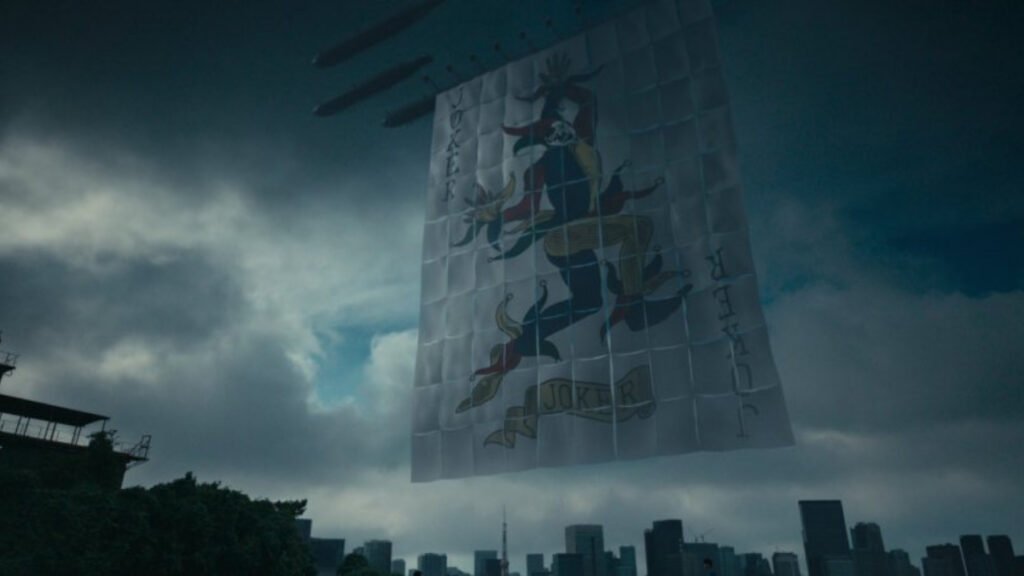
Ryuji is just the man for the job. Banda is aware of Ryuji’s preoccupation with the afterlife, his craving for a look at life beyond ordinary existence, and plays on that weakness. To accomplish this, Banda leads Ryuji into betraying Usagi by promising him access to the “Netherworld” due to the fact that she’s in mourning brought about by a vulnerable time Banda and some other Titans put her through.
If Usagi is reeled in, Arisu’s love will reel him harder — Banda knows it. In this way, Banda isn’t just refusing to let Arisu go back to life — he’s constructing a snare that exploits Ryuji’s desire and Usagi’s anguish as a tether to keep Arisu caught in the Borderlands forever. For Banda, this is not about cruelty for its own sake. It’s about building the ultimate performance, in which Arisu will be both star actor and victim of Banda’s perpetual theatre of chaos.
Did Usagi and Arisu Survive the Final Game?
In the final game, Possible Futures, everyone has to throw dice and trek through a grid of rooms until each choice delivers them into a lived future — and another glimpse at the life awaiting if they escape. The visions become too much for Arisu to bear when he starts seeing a future where Usagi and their yet-to-be-born child, even including himself, are set to die. That exchange exemplifies his fear — that whatever happiness he can find in love, it can only bring tragedy.
Rather than seek “Survival” on his own, he stays behind in the final room under the impression that sacrificing his own future is the only way for Usagi and company to have a shot at one. But when he learns that the game itself was set up to ensure they all died, Arisu makes a rebellious decision: He destroys the system and refuses to play by the Borderland’s rules. “This isn’t just rebellion against the rules, you know,” comes his response — which is really his declaration that love and choice matter more than inevitability.

An enraged Banda attempts to murder Arisu for not “playing properly,” but the Joker’s right hand steps in. And in this moment, the Borderlands are distilled to their purest: a space between life and death, where players must decide what it is they wish to be. The Joker’s right hand presents Arisu with one last game — pick a card and choose his fate. At the sound of Usagi’s cries, Arisu hesitates no more. He jumps into the vortex of life, not taking the promise of certainty but a tie that keeps him in place. They did it together, he and Usagi returning to the real world with a price paid but also free.
Later, we see Arisu and Usagi’s reunion, the gentle way they discuss names for their future baby, his tender acknowledgement of familiar faces who no longer know him — all suggest that healing is possible but that the wounds never quite fade.
What Does the Ending of Alice in Borderland Season 3 Signify?
The end of Alice in Borderland Season 3 has enough openings to make audiences wonder if this is really, truly the end. At first blush, Arisu and Usagi seem at peace; they survived the game once again, and ultimately escape back to the real world and are left imagining a life together. That feels like closure. But the series doesn’t find a neat “happily ever after.” Instead, it slips in two calculated teases: the unexplained earthquakes and the switch to America, where a woman named Alice is serving tables. Neither thread is wrapped up, indicating that mysteries of the Borderlands could still be unravelling globally.
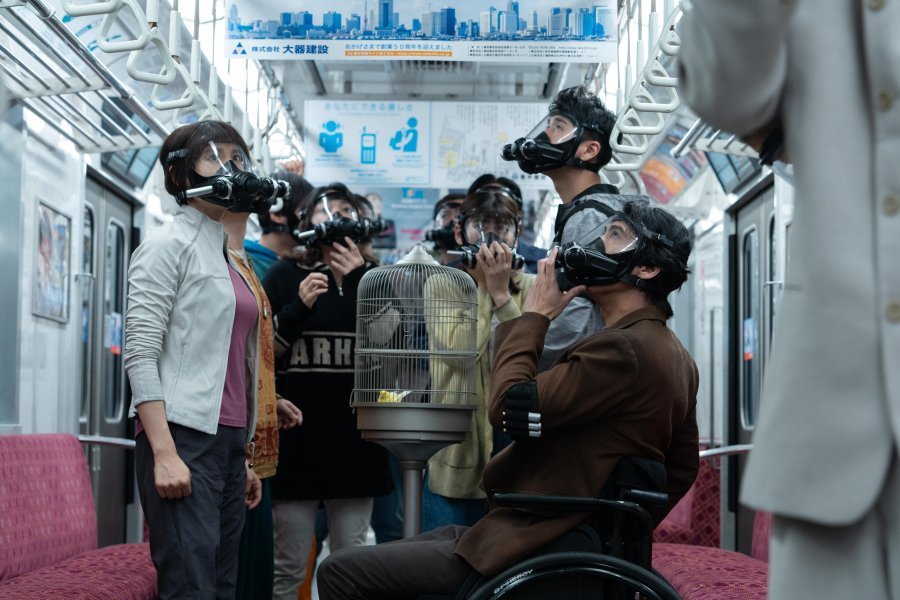
Emotionally, Season 3 wraps in a manner that could be the end of the story — Arisu opts for life and love and a future instead of an endless series of games. But the show also knows that the Borderlands are not only about Arisu; they represent something bigger about humanity’s struggle with mortality, destiny and survival. By raising the spectre of Alice in Borderland America and leaving questions unanswered, the creators appear to be sowing seeds for a sequel. Whether Season 4 occurs will likely hinge on whether those themes are explored as part of a new arc or if Season 3 is meant as an ambiguous goodbye.
Also Read: Tempest Episode 6-7 Review: Explosive Family Secrets, Shattered Trust, and Love in the Crossfire
